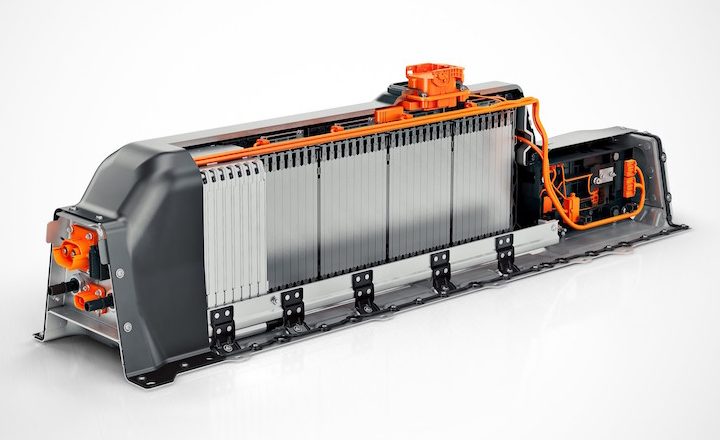Solid-state batteries should reduce the carbon footprint of electric vehicle batteries by almost two-fifths – further increasing EVs’ environmental advantage over fossil fuel vehicles.
That’s according to research commissioned by Transport & Environment from Minviro, a UK-based company specialised in raw material life-cycle analysis, which compared emerging solid state technology to current battery chemistries.
A solid state battery, which stores more energy with less materials, can reduce the already decreasing carbon footprint of an electric car battery by a further 24%, the study finds. The analysis compares a NMC-811 solid state battery, which is one of the most promising chemistries being developed, to current lithium-ion technology.
Solid state technology uses solid ceramic material instead of liquid electrolytes to carry electric current, also making the batteries lighter, faster to charge and eventually cheaper. Battery manufacturers forecast that solid state batteries will be used in EVs in the second half of the decade.
Matt Finch, UK Director at T&E, said, “Electric vehicles in the UK already produce far fewer emissions than cars burning oil and this is improving every year as electricity gets greener. But solid state technology will achieve a step change requiring far less materials, and cause even less environmental damage.”
The new technology can reduce the climate impact of batteries even further – by 39% compared to current lithium batteries – if solid state batteries are made using the most sustainably sourced materials, the research also finds. New mining methods, including extracting lithium from geothermal wells – which is being pioneered by Cornish Lithium among others –, have significantly lower climate impacts than more commonly used sources such as lithium from hard rock mined in Australia and refined in China.
T&E said the UK’s low-carbon electricity production positions it to become a leader in cleaner battery manufacturing, but it needs strong safeguards to ensure the raw materials are consistently sourced sustainably and recycled at the end of their life.
Solid state batteries could require up to 35% more lithium than the current lithium ion technology, but far less graphite and cobalt are used. The requirements in the EU’s proposed Batteries Regulation for lithium to be sourced responsibly – in terms of environmental and social impacts – and recycled are a ‘no regrets’ policy that will ensure there is enough supply for solid state batteries. There are no equivalent requirements planned in the UK.
Matt Finch added, “The EU is introducing new rules to clean up the way we obtain the raw materials in batteries and to require old cells to be reused and recycled. But the UK has no equivalent plans and as a result, Germany has three timesmore battery recycling plants planned. The UK is literally throwing away the opportunity to reduce raw material imports, create new jobs and reduce the impact of making batteries.”
T&E wants the UK government to implement similar but better rules than those proposed by the EU, including tougher lithium recycling targets. UK rules should also ensure companies are required to protect human rights and the environment in all stages of battery production.


